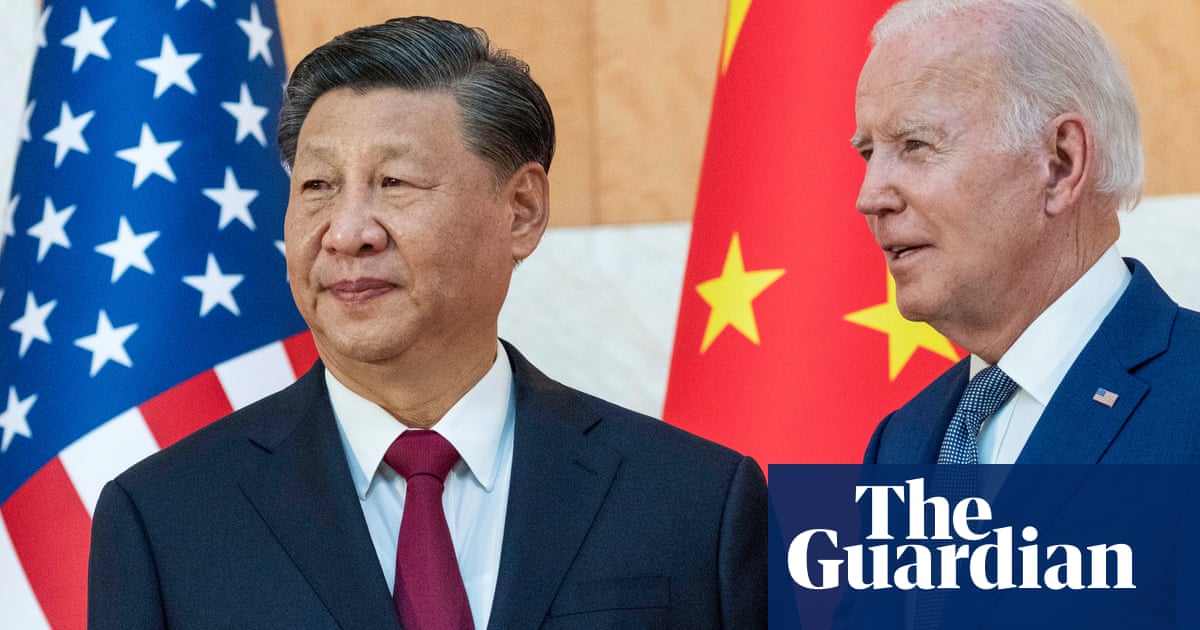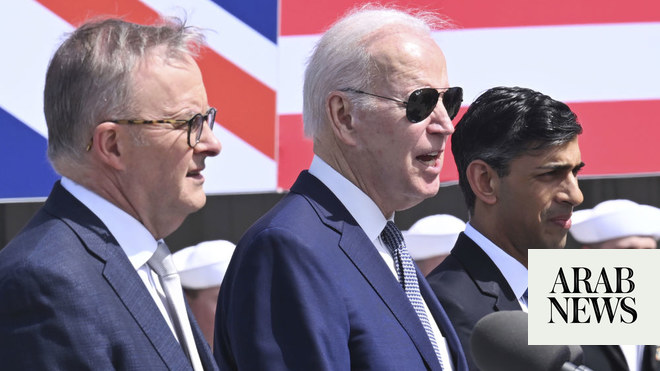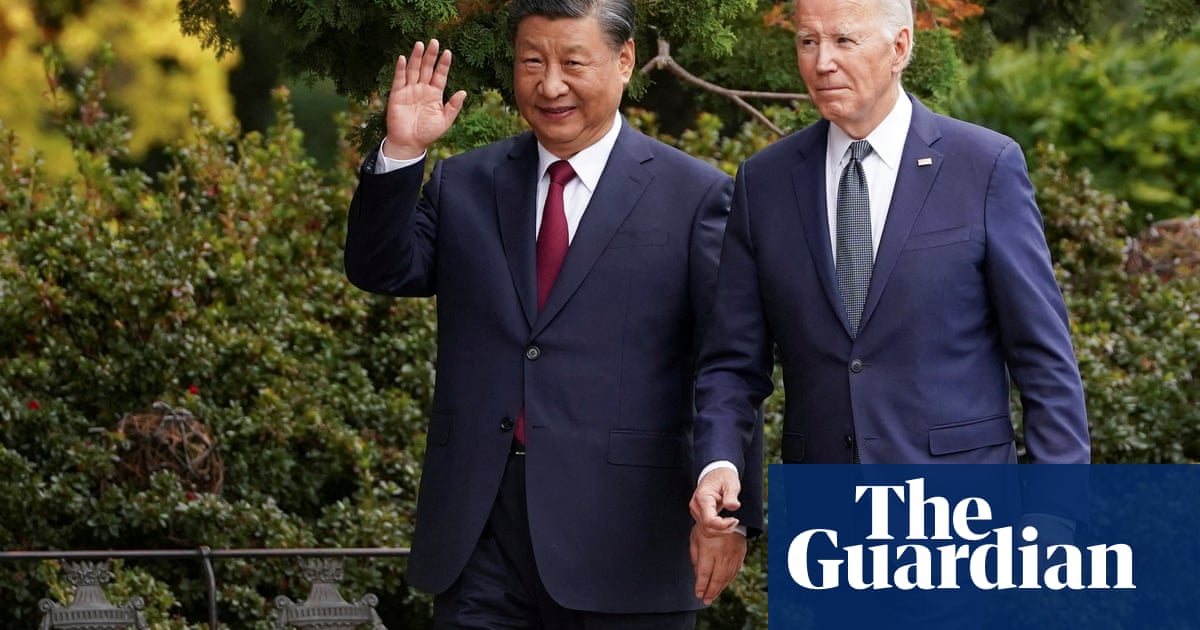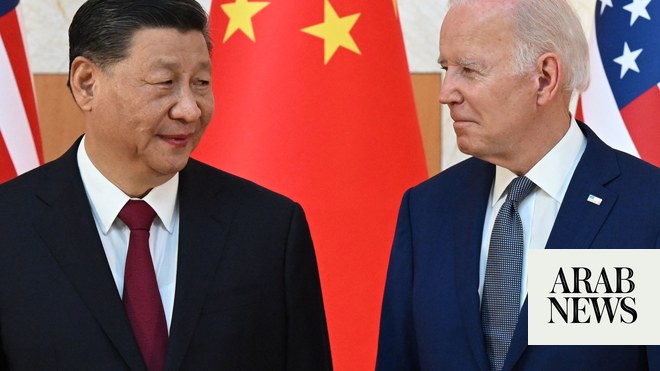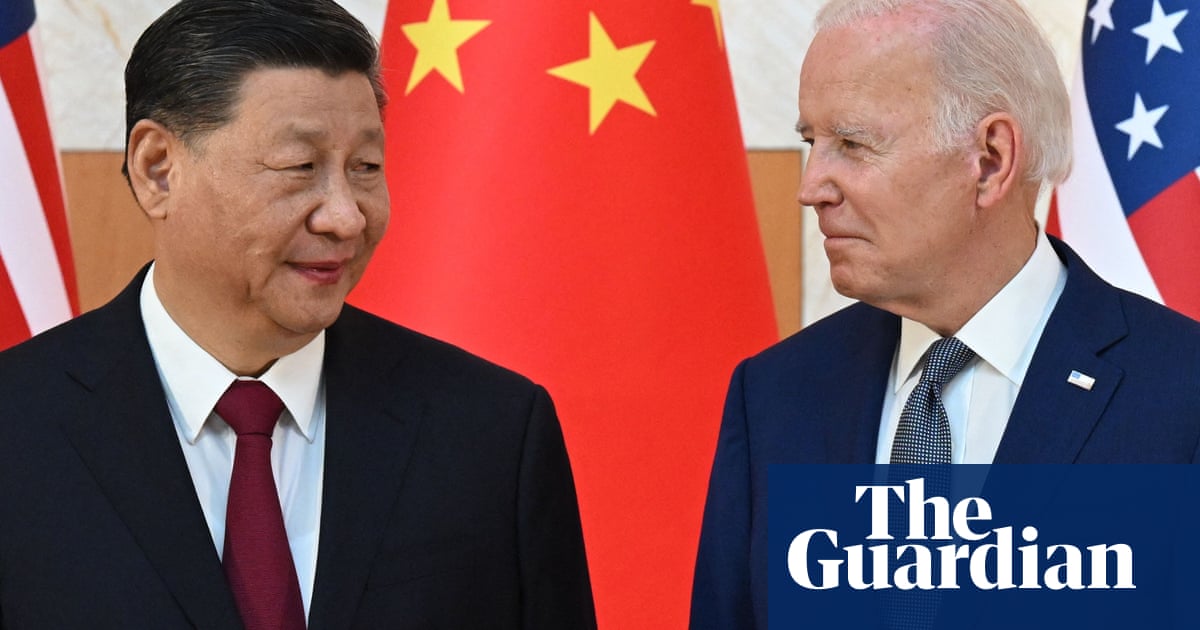
Joe Biden and Xi Jinping are set to announce an agreement for China to crack down on the manufacture and export of fentanyl, the primary culprit in a synthetic drug epidemic blamed as the leading killer of Americans between 18 and 49.
Bloomberg reported that under the deal – which the US and Chinese presidents are still finalizing – China would go after chemical companies to halt the flow of fentanyl and the source material used to make it.
In return, Biden’s White House would lift restrictions on China’s forensic police institute. China had long questioned why the US would expect cooperation in the battle against fentanyl when the US government had placed restrictions on the institute.
Last year the US reported 110,000 overdose deaths from synthetic drugs, with more than two-thirds linked to fentanyl, a potent opioid.
Fentanyl is up to 50 times stronger than heroin and is increasingly mixed with other illicit drugs, often with lethal results.
The US Drug Enforcement Administration (DEA) has said that fentanyl largely comes to the US from China, through drug cartels in Mexico.
Authorities say fentanyl can be created and distributed more easily than plant-based illicit drugs, which required large-scale enterprises to cultivate and market.
The fentanyl announcement is scheduled for Wednesday when the two leaders are set to meet on the sidelines of the Asia-Pacific Economic Cooperation (Apec) summit in San Francisco. The White House did not respond to request for comment on the deal.
The meeting between Xi and Biden would be their first encounter in a year, amid tensions over trade, sanctions and the question of whether Taiwan governs itself or is a Chinese territory.
It will also mark Xi’s first visit to the US since 2017, CNN reported.
Talks between the two leaders in November 2022 generated some positive momentum, but it swiftly stalled after the US shot down an alleged Chinese spy balloon in February off the coast of South Carolina. The immense balloon, which had a large payload of electronics, crossed above sensitive military installations and prompted suspicion that Beijing was harvesting intelligence – though in June military officials declared it had not. China insisted that the purpose of the balloon was to study the weather.
The episode delayed a visit to China by the top US diplomat, the secretary of state Antony Blinken, though he ultimately did make it to Beijing in June this year.
A new agreement on fentanyl would represent another step forward in restoring cordial diplomatic relations, as well as a sign of progress for the Biden administration on the drug. It has taken sharp aim at the importation of fentanyl and other illegal substances, with US overdose rates stubbornly resisting most efforts to reduce them. The rate of deaths involving the drug more than tripled from 2016 through 2021, according to the US Centers for Disease Control and Prevention (CDC).
Blocking fentanyl “precursor” chemicals has been a priority for the US government. Last month, it also announced sanctions and indictments against at least 14 Chinese and Canadian firms for importing the fentanyl. The majority of those indicted were in China.
In July, the US created a coalition to address the threat of synthetic drugs, including fentanyl. China initially declined to participate in a virtual meeting to launch the coalition.
But US officials visited China several times this past summer. One of the hopes for such engagement was that China would crack down on individuals and businesses selling chemicals for fentanyl production to drug cartels.
Biden on Tuesday said the US and China must get “on a normal course corresponding” once again.
“Being able to pick up the phone and talk to one another if there’s a crisis. Being able to make sure our militaries still have contact with one another,” Biden told reporters at the White House.
“We’re not trying to decouple from China, but what we’re trying to do is change the relationship for the better.”




